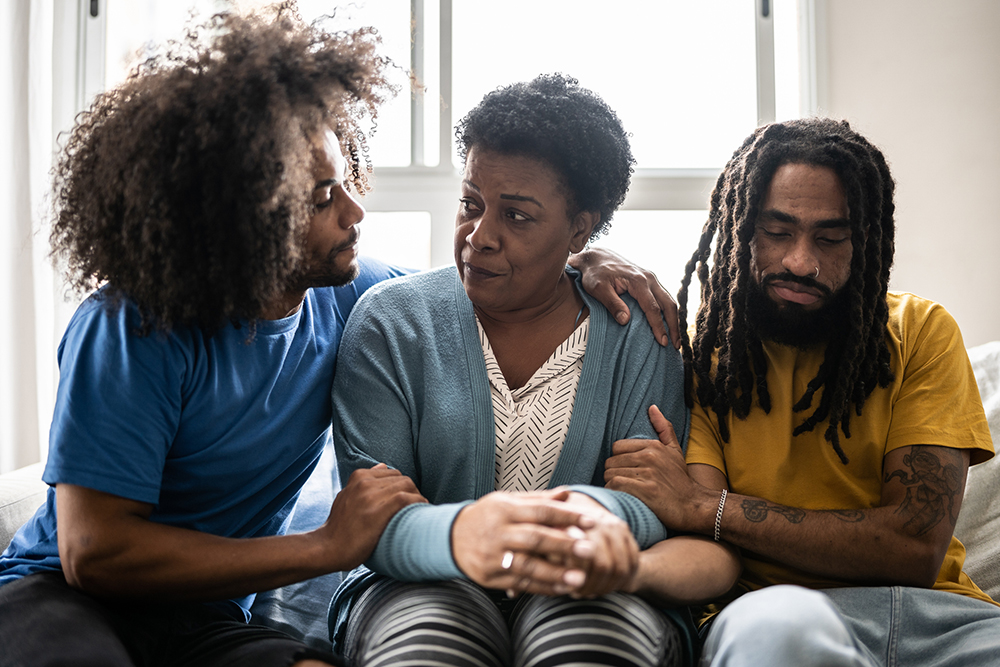Friday, May 3, 2024
Helping a Loved One Through Crisis
Medically reviewed by Shreya Nagula, MD
Facing a crisis is challenging, affecting both the person directly affected and their loved ones. Having a supportive network during this time can build connections and reduce feelings of isolation. Emotionally supportive relationships contribute to lower stress levels and improved mental and physical health outcomes.
Here's a quick guide to the do's and don'ts of supporting someone during trying times:

DO: Encourage open communication
- Establish a safe space for discussing feelings without judgment.
- Actively listen and provide compassion.
DO: Connect with mental health resources
- Familiarize yourself with accessible/local mental health services.
- Encourage participation in counseling or support groups for tailored help.
DO: Prioritize physical well-being
- Don't neglect physical well-being during emotional challenges.
- Encourage healthy habits: regular exercise, balanced nutrition, and sufficient sleep.
DON'T: Assume you have all the answers
- Adopt a collaborative approach to supporting your loved one.
- Demonstrate humility, avoid assumptions and explore solutions together, fostering a sense of partnership.
DON'T: Press for immediate solutions
- Allow your loved one time and space to navigate challenges.
- Empower them to make thoughtful decisions at their own pace.
DON'T: Neglect your own well-being
- Recognize and address your own stress levels and mental and physical health needs.
- Seek support from friends or counseling services.
There’s no one-size-fits-all solution, but these do's and don'ts can help create a framework for effective support during challenging times, boosting resilience and supporting a healthy dynamic for both you and your loved one.
Despite the best intentions, even the most compassionate individuals can find themselves overwhelmed when aiding a loved one through a crisis. If you or someone you know is struggling, don't hesitate to contact our behavioral health specialists at WMCHealth Physicians and Bon Secours Medical Group.